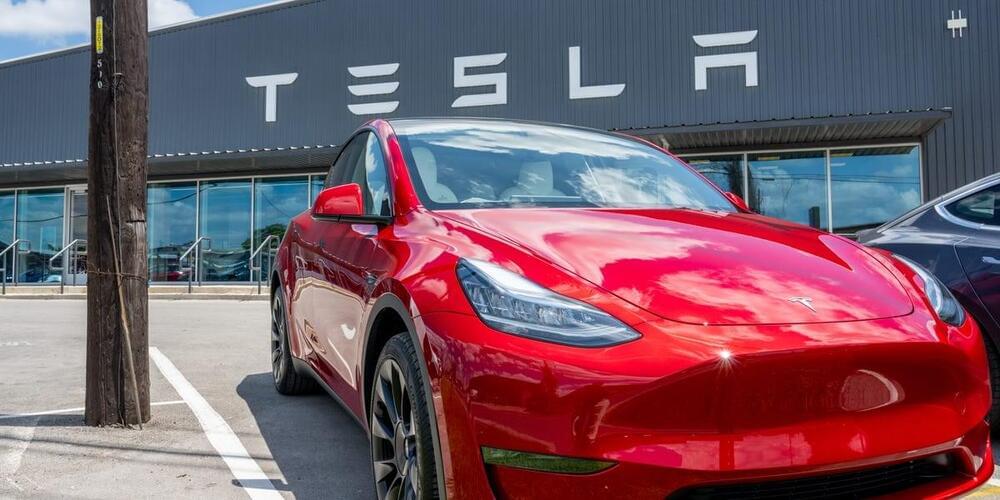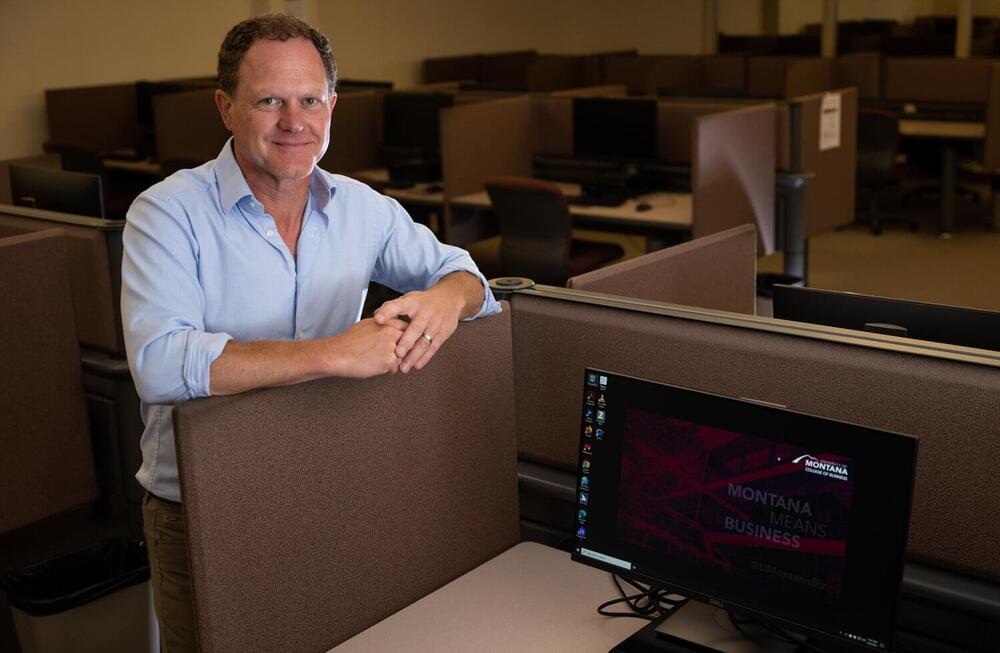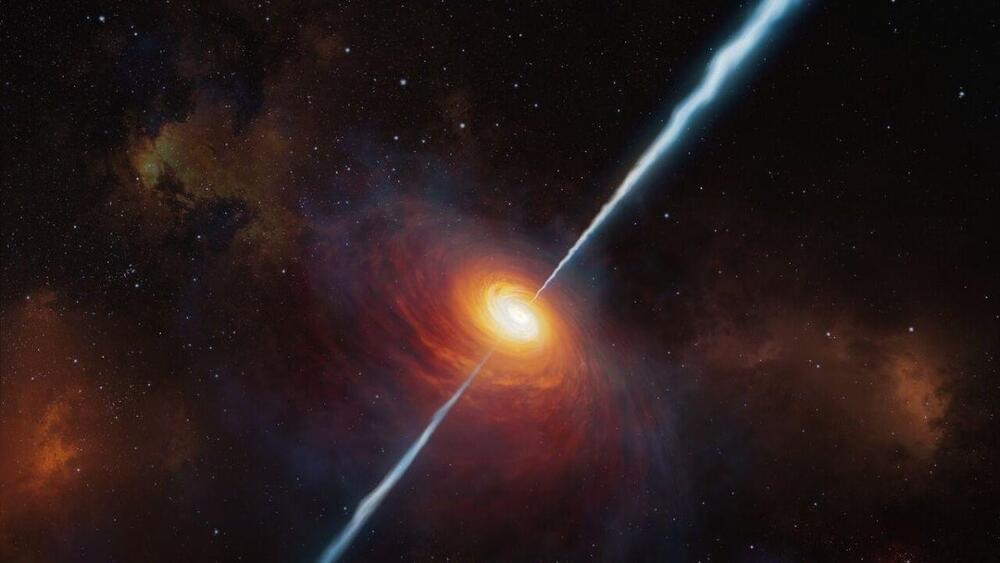Tesla car insurance rates vary by model. Find out how much it costs and why coverage is more expensive.



New research from the University of Montana and its partners suggests artificial intelligence can match the top 1% of human thinkers on a standard test for creativity.
The study was directed by Dr. Erik Guzik, an assistant clinical professor in UM’s College of Business. He and his partners used the Torrance Tests of Creative Thinking, a well-known tool used for decades to assess human creativity.
The researchers submitted eight responses generated by ChatGPT, the application powered by the GPT-4 artificial intelligence engine. They also submitted answers from a control group of 24 UM students taking Guzik’s entrepreneurship and personal finance classes. These scores were compared with 2,700 college students nationally who took the TTCT in 2016. All submissions were scored by Scholastic Testing Service, which didn’t know AI was involved.

Scientists from the Universities of Paderborn and Leuven solve long-known problem in mathematics.
Making history with 42 digits: Scientists at Paderborn University and KU Leuven have unlocked a decades-old mystery of mathematics with the so-called ninth Dedekind number. Experts worldwide have been searching for the value since 1991. The Paderborn scientists arrived at the exact sequence of numbers with the help of the Noctua supercomputer located there. The results will be presented in September at the International Workshop on Boolean Functions and their Applications (BFA) in Norway.
What started as a master’s thesis project by Lennart Van Hirtum, then a computer science student at KU Leuven and now a research associate at the University of Paderborn, has become a huge success. The scientists join an illustrious group with their work: Earlier numbers in the series were found by mathematician Richard Dedekind himself when he defined the problem in 1,897, and later by greats of early computer science such as Randolph Church and Morgan Ward. “For 32 years, the calculation of D was an open challenge, and it was questionable whether it would ever be possible to calculate this number at all,” Van Hirtum says.

Lewis and Brendon Brewer of the University of Auckland are co-authors on a new paper describing the long-sought after confirmation of time dilation effects in the variability of quasars. A quasar is powered by an accreting supermassive black hole at the heart of an extremely active galaxy. Because the accretion disk around the black hole is relatively small, fluctuations in the light emitted by the quasar can take place in just days. This makes them easier to track.
However, in the time since the light, and its fluctuations, was emitted from the 12 billion-year-old quasars, the universe has expanded greatly. This means that we are seeing the quasars as they existed over 12 billion years ago.
“We expected quasars to also exhibit this behavior, but previous searches had failed to find it,” said Lewis.

One way to achieve this is to combine GPTs with causal AI—a precise and trustworthy type of AI that provides rich and accurate context, which is particularly valuable in cloud observability, analytics and automation.
Causal AI observes the actual relationships within a system, such as a multicloud technology stack, and delivers detailed and precise answers in near real time based on these observations. These answers enable users to discern the cause, type, severity, risk, impact and location of any issue flagged by the AI with very high precision based on real-time observed facts and their interdependencies.
In the future, DevOps teams can use automated prompt engineering to feed real-time data and causal AI-derived context to their GPT. As a result, the answers they receive will be more relevant, accurate and actionable.

After being one of the first plugins to ever come to ChatGPT, Wolfram has now gone all in on the LLM wave. In the latest version 13.3 update, the Wolfram language has added support for LLM technology, as well as integrating an AI model into the Wolfram Cloud.
This update comes on the heels of Wolfram slowly building the tooling for making the language LLM-ready. The update puts LLMs directly into the language with the introduction of an LLM subsystem for the language. It also builds on the LLM functions technology added in May, which ‘packages’ AI powers into a callable function, with the new subsystem now being user-addressable.
With these new updates, developers have a whole new way of interfacing with their data. This approach combines Stephen Wolfram’s idea of natural language programming along with the Wolfram language’s symbolic programming, creating a force to be reckoned with. What’s more, with the Wolfram language API, this can be plugged in to larger systems, delivering amazing power through a natural language interface.


When you turn on a lamp to brighten a room, you are experiencing light energy transmitted as photons, which are small, discrete quantum packets of energy.
These photons must obey the sometimes strange laws of quantum mechanics, which, for instance, dictate that photons are indivisible, but at the same time, allow a photon to be in two places at once.
Similar to the photons that make up beams of light, indivisible quantum particles called phonons make up a beam of sound. These particles emerge from the collective motion of quadrillions of atoms, much as a “stadium wave” in a sports arena is due to the motion of thousands of individual fans. When you listen to a song, you’re hearing a stream of these very small quantum particles.

New research published in Scientific Reports suggests that microbes in the human gut and mouth can impact how long people live [1].
Bacteria and other microbes are often associated with diseases, but disease-causing microbes are only a minority. The majority of microbes are harmless or beneficial to humans, and we have millions of them living inside and outside us. Researchers refer to this community as the microbiota.
In previous research, scientists had noticed an association between microbiota and longevity [2]. However, the association between two things does not necessarily mean that one is causing the other. Therefore, in this new paper, researchers explored potential causal relationships between gut and mouth microbes’ composition and longevity in order to determine what compositions of microbiota result in increases or decreases in lifespan.